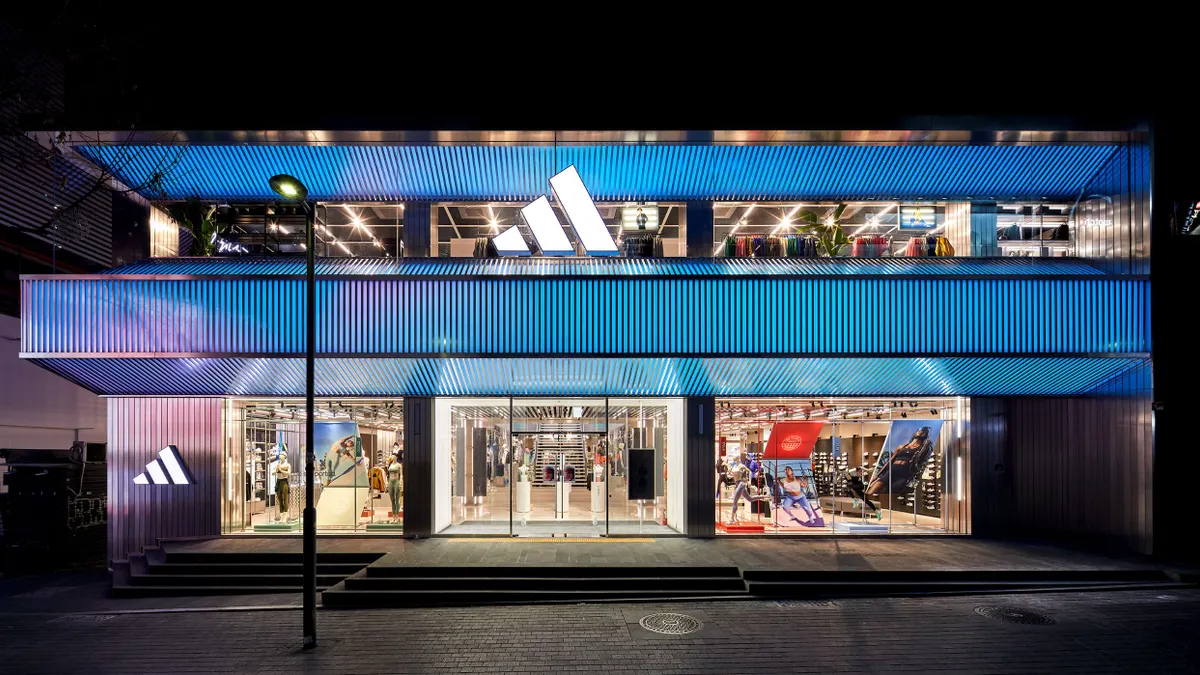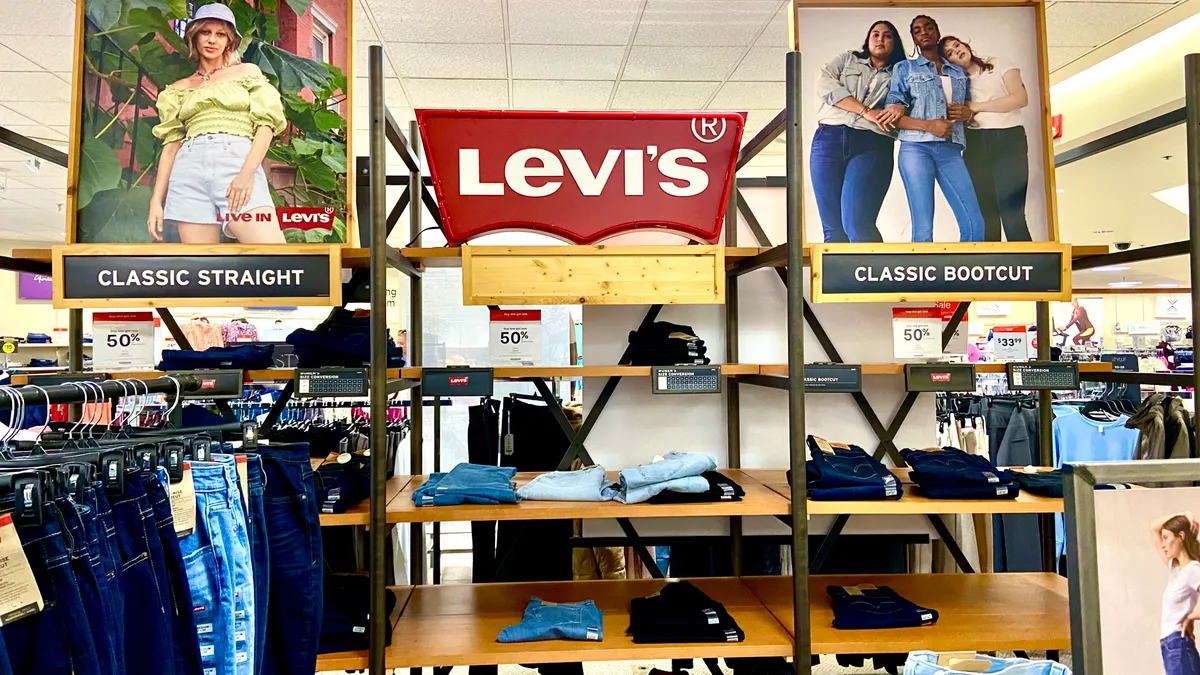A retail turnaround is already a complex project rife with challenges, both external and internal. From the outside, consumers can be fickle and discount-minded. From the inside, merchandise misses or operational failures require new teams and new ideas.
Meanwhile, a retailer's poor sales can send shares spiraling down as investors lose confidence. If the stock price gets below a certain threshold (usually $1) for too long a time, the retailer gets another item for its to-do list — a notice from the stock exchange that the price needs to recover or they're in danger of getting kicked off. This year, several retailers in various industry segments, including Rite Aid, Pier 1, J.C. Penney and Ann Taylor owner Ascena, have faced or are currently facing a delisting.
While a too-low share price may be the most common reason for a delisting scare, there are other paths there. For example, the stock exchanges (for most publicly traded retailers in the U.S. that means the Nasdaq or the New York Stock Exchange), stipulate that, in order to trade in their markets, a variety of criteria must be met, including a minimum number of common shares (not held by officers, directors or "beneficial owners") and a minimum number of "makers" (banks or brokerage companies ready with buy and sell orders).
However it happens, dealing with a delisting notice is just one more headache for a company that is almost certainly already struggling, according to Alon Kapen, a partner at law firm Farrell Fritz, who heads its emerging companies and venture capital practice group and has helped companies climb back into the good graces of stock exchanges.
"All this is an enormous distraction to management at a time when they're under enormous business pressure, when they're shutting down stores and facing the realities of the retail industry," he told Retail Dive in an interview.
A retail problem
Just this year, several retailers have received delisting notices, and have responded with differing tactics to rectify their predicaments.
Those still facing the issue include Stein Mart, Pier 1 (which is tackling it for the second time after engineering a reverse stock split that failed to boost its price enough) and Ascena.
Not all companies opt to fight to stay on a stock market. Destination Maternity, which is in the midst of bankruptcy proceedings, is off the Nasdaq Stock Market as of Nov. 18. The Tile Shop in October was similarly ready to file to voluntarily jump off the Nasdaq rather than make the effort to remain, saying it would save on the costs of being a public company. But, facing a lawsuit from investors over that decision, it withdrew (and now must contend with fixing its delisting threat), according to a November filing with the Securities and Exchange Commission.
Telsey Advisory Group analysts were surprised by Tile Shop's decision. "We can think of other ways to [cut] costs/operate more efficiently and wonder why the company did not take an alterative approach," Telsey said in emailed comments, suggesting a pursuit of a sale as one such option.
But the Tile Shop's approach is understandable. Expect more delisting notices at retailers, thanks to their vulnerabilities, according to Eddie Yoon, founder of EddieWouldGrow, a think tank and advisory firm on growth and co-author of the upcoming book "What is Category Creation?"
"One trick pony business models are increasingly disadvantaged, which is particularly true of retailers," he told Retail Dive in an email. Amazon, by contrast, along with being the e-commerce leader, is also "perhaps the most successful enterprise software company, with AWS. And they have unmatched big data. How is a single business model retailer supposed to compete?"
The options
Companies that have received a delisting notice have a few options beyond accepting that fate, Kapen said.
Under Nasdaq rules, for example, the company must make a public announcement about the notice. If they're required to report to the SEC, they must file an 8K form; if they're not an SEC reporting company, they must publish a press release. Either way, they must go public with details about how they're out of compliance and how they plan to address it. The exchanges provide a set number of days to submit a plan, and, if it's accepted, the delisting deadline is extended. If it's not accepted, the retailer can request a hearing with exchange staff. During all this, shares are usually allowed to continue trading, according to Kapen.
"There's a fair process, very company friendly, so a de-list is not the end of the world, even if the company is not able to get back into compliance."

Alon Kapen
Partner, Farrell Fritz
"There's a fair process, very company friendly, so a de-list is not the end of the world, even if the company is not able to get back into compliance," he said, noting that trading can sometimes be moved to a down-list market also run by Nasdaq or NYSE. "An exchange like that makes money by maximizing participation, so they will work with you. I have found them to be enormously helpful. By the same token, they have standards that they have to maintain."
One of the most commonly used tools to climb back into legitimate share-price territory is a reverse stock split, which usually must be approved by shareholders. The maneuver involves halving the number of shares, which doubles the per-share price, usually catapulting it above the compliance minimum. For most shareholders, the effect is nill. But it can get expensive for the company because, in the process, some investors end up with fractions of shares, and some state laws allow companies to cash them out.
But it's been a handy move this year for several retailers, including Rite Aid and Francesca's. Both, unlike Pier 1, have managed to sustain and even grow their share price in the months since executing their splits. While J.C. Penney contemplated the move, the company regained compliance just days before press time because its share price had recovered, on its own, for the requisite time period.
But scrambling to get back onto a stock exchange's good side, even when it's successful, does nothing for a retailer's turnaround.
The glare of Wall Street
Trouble in retail isn't the only reason for the rash of delisting notices of late. It's also due to a consolidation of publicly traded stocks, and more capital being poured in companies that allow them to grow while they're privately held instead, according to Yoon. As of Nov 1, the top five S&P 500 stocks — or 1% of the S&P 500 — account for 15% of its total market cap; the bottom half of the S&P 500, collectively, are worth less than the top five stocks, he said.
"Publicly traded stocks are going through a 10 year phase of 'musical chairs', where the seats are disappearing and the fewer public stocks are getting bigger," he told Retail Dive in an email, noting that in 1998 there were about 8,000 publicly traded U.S. stocks, while at the end of 2017 there were about 3,600. "At some level, retail stocks being delisted is the natural Darwinian consequence of all of the above."
As Kapen noted, the situation is a distraction for a retailer, but that's also true more broadly of being a publicly traded company, Yoon said. "It's really hard to make fundamental changes while being a public company," he said. "When a company goes private, it is better suited to make the fundamental changes, investments and innovations without the spotlight of quarterly earnings. After a few years, it may be ready to re-enter the public markets."
Target is among the few retailers that have been able to engineer a turnaround under the investor spotlight, he said, crediting CEO Brian Cornell's previous experience. Better to take the route of Barnes & Noble, which was recently taken private, he said. Making meaningful changes outside the glare of Wall Street is an oft-cited reason that the Nordstrom family, though unsuccessfully, attempted more than once to take the department store private.
"My prediction is that more retailers will be delisted (or worse), or will consolidate via [mergers and aquisition], or will be acquired as part of a broader 'Category Creator' play, like Amazon buying Whole Foods," Yoon said.






















